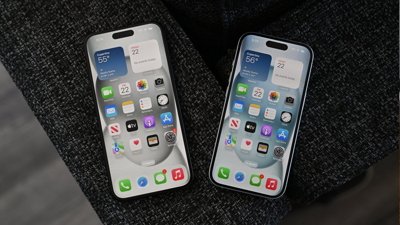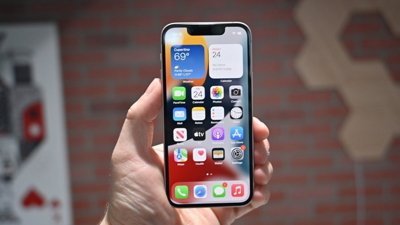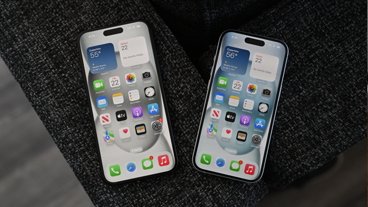Android makers "unfazed" by Google's Motorola deal, but patents judged weak
A report by Reuters at the IFA consumer electronics fair being held in Berlin, Germany said that interviews with representatives of Android licensees Acer, Sony Ericsson and HTC painted a unanimously optimistic view Google's acquisition of Motorola Mobility.
The report said licensees continue prefer to view the acquisition as a "move to protect the software from legal attacks and not a competitive threat in the marketplace," and stated that "the Motorola acquisition will give Google access to one of the mobile phone industry's largest patent libraries."
The "legal attacks" against Google's Android include efforts by Microsoft and Nokia to force Android licenses to pay for patented technology infringed upon by Android, as well as efforts by Apple and Oracle to block sales of Android devices entirely, due to infringement of technical and design implementation patents.
Motorola Mobility patents "crap"
However, in a video interview published by Bloomberg West, Dr. David Martin, founder and chairman of M-Cam Inc, called Google's $12.5 billion acquisition of Motorola Mobility "an immense mistake for two reasons."
Martin stated that "what they bought is crap, because at the end of the day Motorola sold off its good assets. Back in the early years, Motorola sold off some MPEG patents to GE in a securitization deal. After that, they took a bunch of the Freescale patents and sold those off." Martin then said that Google had actually increased its patent vulnerability, "painting a target" on itself with the deal.
An independent report by FOSSPatents blogger Florian Mueller noted that that 7 of Motorola Mobility's 18 patents that are thought to be relevant to Android and smartphones (of the 25,000 patents and pending patent filings the company sits on) were previously 'declared essential to industry standards,' and therefore restricted by F/RAND commitments that limit them from being raised defensively as valid counterclaims against the infringement of Apple's implementation patents.
Mueller referred to Martin's comments on Bloomberg West before adding, "And the relatively best ones MMI has — which wasn't discussed on Bloomberg — are subject to F/RAND commitments."
Mueller said that claims that Motorola's Google-acquired patents are "so powerful that they can protect Android as a whole" are "completely off base," and described those making that claim as "issuing statements that blow the strategic value of MMI's patents completely out of proportion," adding that "Googlorola won't help Samsung."
Android needs protection; licensees not entirely unfazed
Nikolaus Scheurer, the head of product marketing at Sony Ericsson, was cited by Reuters as saying, "It is important for us to protect the Android ecosystem," while adding that "Google confirmed that this [acquisition] is not making Google a hardware manufacturer," a belief that runs counter to comments by Google itself that its acquisition of Motorola Mobility would, among other things, allow it to pursue new hardware products it can't currently.
"I assume the global market share of Motorola is somewhere around 15 percent in Android," Scheurer said. "I think everybody would agree that it does not really make sense to jeopardize 85 percent of your business."
Sony Ericsson previously weathered through the collapse of Symbian, lead and eventually taken over by Nokia, and then lived through Microsoft's attempts to compete with its own Windows Mobile licensees with its failed KIN phones (after destroying its PlaysForSure partners with the introduction of the Zune).
Sony Ericsson remains a licensee of Microsoft's Windows Phone 7, although it has not introduced any new WP7 phones since Microsoft aligned the future of WP7 with its close partnership with Nokia.
HTC continues to make both Android and WP7 phones, introducing new WP7 models even as it also pays Microsoft for patent royalties involved in its production of Android phones. Acer has also demonstrated new WP7 models.
Samsung, which Reuters did not mention in the report, is the largest Android licensee and has gone on record making the same supportive public comments about the Motorola Mobility acquisition by Google. However, the company was also reported to have enacted a top down push to focus on software development of its own, including its alternative Bada platform.
 Daniel Eran Dilger
Daniel Eran Dilger










 Malcolm Owen
Malcolm Owen
 Christine McKee
Christine McKee

 Amber Neely
Amber Neely

 William Gallagher
William Gallagher








